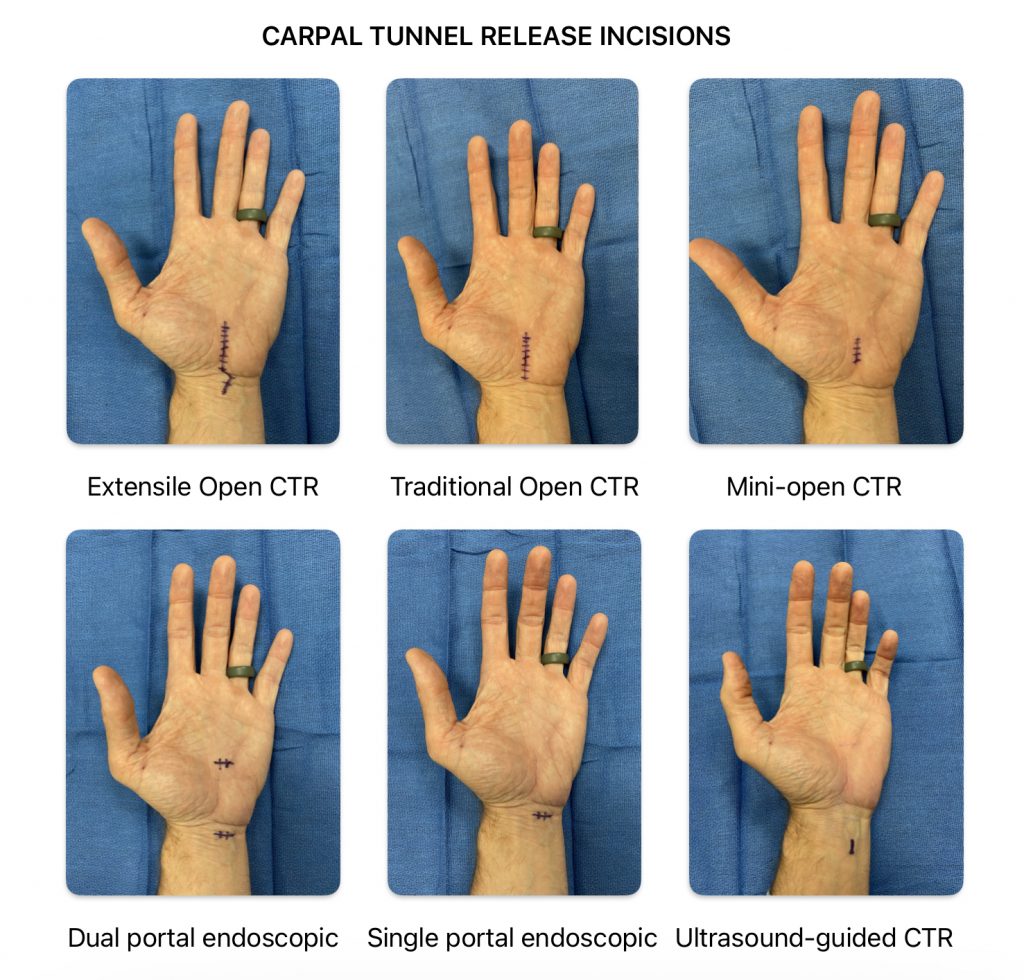There are several different ways to perform a successful carpal tunnel release surgery. These various procedures include the traditional open carpal tunnel release, mini-open carpal tunnel release, one or two portal endoscopic release, and ultrasound-guided release. The location and size of the incision will vary depending on the type of surgery performed and the preferences of the surgeon.
What is the best carpal tunnel release surgery?
It depends on who you ask! When surgeons get together for meetings to discuss patient care, they often debate the pros and cons of each surgical technique. Every surgeon has a preferred carpal tunnel release technique that they recommend to their patients. This decision ultimately is based on the training and practice of the surgeon, the risks and benefits of the various procedures, and the potential for complications. The surgery can be performed with local anesthesia, supplemented with oral Valium if necessary for anxiety, or with IV sedation anesthesia. General anesthesia and hospitalization are not typically necessary for carpal tunnel release surgery.
The goal of any carpal tunnel release surgery is to successfully decompress the median nerve in the palm and wrist by cutting the transverse carpal ligament – while avoiding complications. When a surgeon cuts the transverse carpal ligament, the space within the carpal tunnel increases significantly. This allows for more room available for the nerve within the wrist, and it takes pressure off of the nerve. Surgeons are mindful of the potential complications when performing this procedure, including incomplete release or injury to the nearby nerves and blood vessels. While not very common, incomplete carpal tunnel release or nerve injury are two possible causes of patient dissatisfaction after carpal tunnel release surgery. Fortunately, more than 90% of patients are pleased with the result of their carpal tunnel release surgery, regardless of which type of surgery was performed. The types of incisions used for carpal tunnel release surgeries are show in the illustration below.

The surgeons at Raleigh Hand to Shoulder Center are experts in the diagnosis and treatment of carpal tunnel syndrome. Call their office today to schedule a consultation with a hand specialist — find a solution for the painful numbness and tingling in your hands!
